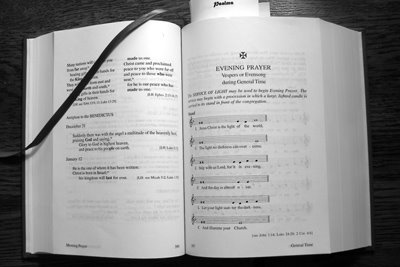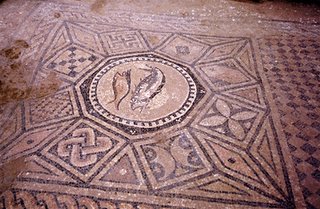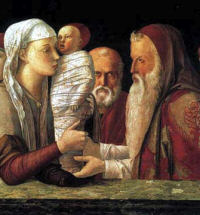
On Friday, February 24, many Christians all over the world remember St. Matthias (sometimes spelled Mathias). Luke tells us nearly all we know about him in his second volume, the Acts of the Apostles, 1:15-26:
15 In those days Peter stood up among the believers (together the crowd numbered about one hundred twenty persons) and said, 16 “Friends, the scripture had to be fulfilled, which the Holy Spirit through David foretold concerning Judas, who became a guide for those who arrested Jesus— 17 for he was numbered among us and was allotted his share in this ministry.” 18 (Now this man acquired a field with the reward of his wickedness; and falling headlong, he burst open in the middle and all his bowels gushed out. 19 This became known to all the residents of Jerusalem, so that the field was called in their language Hakeldama, that is, Field of Blood.) 20 “For it is written in the book of Psalms, ‘Let his homestead become desolate, and let there be no one to live in it’; and ‘Let another take his position of overseer.’ 21 So one of the men who have accompanied us during all the time that the Lord Jesus went in and out among us, 22 beginning from the baptism of John until the day when he was taken up from us—one of these must become a witness with us to his resurrection.” 23 So they proposed two, Joseph called Barsabbas, who was also known as Justus, and Matthias. 24 Then they prayed and said, “Lord, you know everyone’s heart. Show us which one of these two you have chosen 25 to take the place in this ministry and apostleship from which Judas turned aside to go to his own place.” 26 And they cast lots for them, and the lot fell on Matthias; and he was added to the and he was added to the eleven apostles.
Here is a homily by
Dr. Audrey West of the Lutheran School of Theology, Chicago, Illinois, that you may find thoughtful and Good News for you on this feast day:
Ordinary People, Ordinary CallsDid you notice? Mathias, Apostle Number Twelve, just got entranced, endorsed, approved, and called, all in one meeting. With a fast-track candidacy process like that one, you'd think his name would appear on a list of "famous call stories of the Bible." But I'll bet that his is not the first name that comes to mind when somebody asks you to choose a biblical character whose call story most inspires you.
And what about the runner-up, Joseph called Barsabbas with the surname Justus? Three names, just to be sure we know who was the guy who DIDN'T get chosen, but even with three names, he's like a stranger to us, a nobody. Matthias and Joseph called Barsabbas appear nowhere else in Luke-Acts or even in the rest of the New Testament, and their brief call story is hardly the stuff to write home about.
Nothing like the drama of Moses and a burning bush. Or Samuel and a voice in the night. Or Mary and a visit from an angel. Or Paul and a blinding light. Now those are call stories. Supernatural, I-Max images flash, vivid in our mind's eye as we read those narratives: sight and sound and darkness and light. Call stories, super-sized.
Those are the sort of call-stories most people name and remember; those are the call stories many of us would like to have for ourselves. You know, something really definitive, the stuff of movies, rather than the one-foot-in-front-of-another call that more typically characterizes our experience. We love to have a "call" with a capital C. Some of us figure, if we're not gonna hear an audible God-voice, we might at least get a roadside billboard. Have you seen them? They say things like, "God is calling: pick up the phone." or "Follow me today. Love Jesus." I have driven past dozens of these signs – placed roadside by the United Methodist Church, I believe – and I still haven't seen the name "Audrey" on a single one of them. And I've looked!
Who knows: perhaps Matthias would've liked one of those billboards for himself. Perhaps Joseph-called-Barsabbas would've liked to hear a thundering voice out of a burning bush, or at least to have a little conversation with a messenger from God, particularly since it turned out that becoming Apostle Number Twelve was not to be his call. But billboards and burning bushes are not what Matthias and Joseph got. God didn't call them in cataclysmic drama, not with flashing lights and angel visits, not even with a voice from heaven.
Instead, God called them through the ordinary workings of a bunch of humans, gathered together in order to fill an empty position. It's the sort of process familiar to many of our seniors, who must deal with call committees and the workings of the institutional church: a bunch of humans, gathered together, in order to fill an empty position. No pyrotechnic dramatics; just a crowd of earth-bound people. Doing the work of heaven.
It is perhaps surprising that the important task of filling out the Twelve – of making complete the fullness of God's plan – involves such an ordinary process. A process so ordinary that it is completed by the casting of lots – not unlike the flip of a coin, or the rolling of dice. A process so ordinary that even the qualifications are, well, ordinary. Or perhaps we should say, "the qualification," for there's really only one of them.
Peter says that the person who will be chosen is one who accompanied the disciples during all the time that the Lord Jesus went in and out among them. That is, the single, most important qualification for this call, is TIME. Time that knows beginning and end, time that spans an earthly, muddy-water baptism, and a heavenly, cloudy-sky ascension, and everything in between. Time for knowing the whole story.
Not just a few high points of an exorcism here and a miraculous healing there. Not just the way that Jesus captured people's attention with brilliant parables and lessons about lilies. The one who is called is one who has taken time to learn the whole picture: the plan of God, foretold in the Scripture, played out in the life, death and resurrection of Jesus. The one who is called knows time that spans heaven and earth. Chairos by way of Chronos. God's time through the ordinary.
So the call process for Matthias is an ordinary one, carried out by ordinary humans and requiring ordinary preparation. What kind of a call story is this? If the drama is not to be found in the process of call, or in preparation for the call, then surely there will be a little drama in the call itself, in what the call is TO. Surely Matthias will bring about great things for the sake of the people of God. Something along the lines of guiding people out of bondage, or leading a mission to the Gentiles. Wouldn't ya think?
But no; once again ordinary is the operative principle. As I mentioned earlier, the book of Acts tells nothing more about Matthias, nothing about incredible deeds as Apostle Number Twelve. Matthias is called for nothing more dramatic than this: to give testimony to the resurrection of Jesus. Unlike those other great calls of the Bible, this call doesn't beckon ahead to the great things that somebody will do, but rather it looks back to the great things God has already done: from the baptism of John until the ascension into heaven. An ordinary call, bearing witness to an extraordinary God.
The call of Matthias reminds me of a story told by Fred Craddock about his own ministry and sense of call. Craddock says that he always imagined that someday he'd do something really great, he'd be a martyr for Jesus. There'd be a monument built for him to recognize his deed and people would come by and read "Here's where Fred gave it all for Jesus."
He always thought his call would play out as a spectacular $100 bill kind of experience. But then he came to realize that his ministry was actually about giving lectures, reading books, grading papers, going to meetings. He knew he'd finally accepted that call when he took the $100 bill to the bank and said, "give it to me in quarters." Now, Craddock says, he lives out his call one ordinary quarter at a time.
So, here we are, ordinary people, heading into graduation, into summer, into new ministries in new settings or into the same ministries in the same settings. As we put one-foot-in-front-of-the-other let us be grasped NOT by visions of the spectacular, but by visions of the ordinary. Not thinking that "real" ministry happens only in the big time, but knowing that real ministry happens in God's time. It happens in the normal stuff of life; in the small, in the simple, in the living out of the life to which we have been called – even as ordinary as that life might be.
And when we think of the great call stories of the Bible, may we remember that this story – Matthias' story, Joseph-called-Barsabbas' story, OUR story – this ordinary story is a great call story, too. AMEN
Here is the Church's prayer for this day:
Almighty God, who in the place of Judas chose your faithful servant Matthias to be numbered among the Twelve: Grant that your Church, being delivered from false apostles, may always be guided and governed by faithful and true pastors; through Jesus Christ our Lord, who lives and reigns with you, in the unity of the Holy Spirit, one God, now and for ever. Amen
 Wednesday, March 1, is Ash Wednesday, the beginning of Lent. If you need help in determining what you can do to give shape to your Lenten discipline this year, visit Connecting Worship and Daily Living in Lent or Spirit Home, where you can find more suggestions.
Wednesday, March 1, is Ash Wednesday, the beginning of Lent. If you need help in determining what you can do to give shape to your Lenten discipline this year, visit Connecting Worship and Daily Living in Lent or Spirit Home, where you can find more suggestions.















